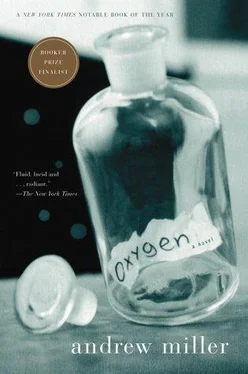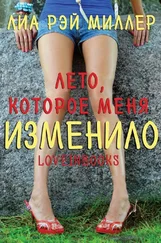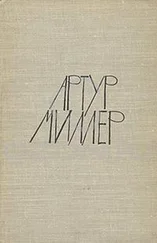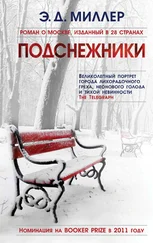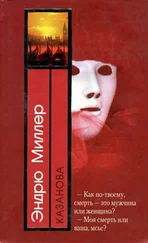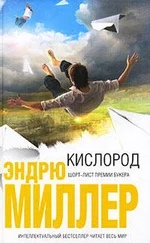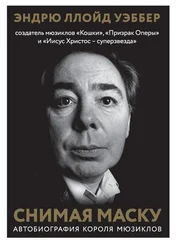‘Two, three days. Leave the bag in the hotel safe.’
‘Wouldn’t it be safer to keep it with me?’
‘It is important that you do exactly as we ask. Nothing more and nothing less. When everything is ready you will be contacted.’
‘How?’
‘That is for others to decide.’
She tapped out her cigarette, then reached down, very casually, to take hold of the strap of his bag.
‘You have everything you need?’
‘But that depends on you,’ said László.
She allowed herself the briefest of smiles. ‘Enjoy your vacation,’ she said. He wanted to ask her whether they would meet again, but already he felt quite sure that they would not. He was sorry for it. Having so thoroughly disliked her at their first meeting, he now decided she was admirable, pure as a blade, though he suspected it was a purity that might one day feel justified in leaving a device in a crowded bar. Charlotte Corday, Ulrike Meinhof. Joan of Arc! How odd he should find himself her confederate in this affair. He watched her walk away. Was she ‘Françoise’? It was a long time since a woman had interested him like this. He was pleased to find it was still possible.
He signalled for the bill, paid in cash and left a tip, but when he came to lift the bag the weight of it astonished him. He had to adjust his grip, bend at the knees a little, hoist the thing on to his shoulder. How much money felt like this? Quarter of a million? Half a million? Impossible, of course, to guess the value without knowing the currency. Deutschmarks or dollars, presumably. Krugerrands? Perhaps. Whatever it was, the donations of the diaspora had obviously been generous, though many of them were gastarbeiter and must have felt the loss of what they gave. For the rest, a tycoon like Bexhet Pacolli could have made the bag heavier without much sacrifice. So, too, those who had become wealthy in more sinister ways (the heroin racket in Zurich was said to be run by Albanians, and the capos there might have welcomed the chance to buy influence). Unlikely that Emil and his friends would be greatly worried by the provenance of the money. In times of need, hard currency could always justify itself.
He bought his ticket in the station hall, collected his pilot’s bag, and went on to the platform, where the train (the ‘Bela Bartók’) was on time, the engine and a score of dusty carriages creeping in under the afternoon shadows of the station. László boarded and edged down the aisle until he came to a compartment emptier than the rest, with two unoccupied seats facing forward. Here, he stowed the blue bag on the overhead rack and sat on the seat by the window, the black bag at his feet, one loop of the strap wound around his wrist. Behind him, two Hungarian voices, city accents like his own but with an argot he didn’t always understand, discussed the latest Ferencváros game. The carriage was stifling – old rolling stock with no air-conditioning – and he longed to sleep, but waking up in Budapest with the bag missing would be a very expensive mistake indeed. It might, quite literally, be more than his life was worth.
A whistle blew, a child was held up to wave goodbye, a little air began to eddy in at the tops of the windows. He sat back, took, or tried to take, a deep breath, but his lungs were sticky, and when he tried a second time, forcing it, there was a pain, like a ravel of irritated nerve ends threaded through his ribs in a line beneath his left armpit. Now here was another thought to play with. After all, there would be nothing extraordinary about a man of his age having a coronary on a hot day, travelling. In casualty they would open the bag looking for his medication, or just made curious by the weight of it. A pity he would not be there to see their faces.
He put on his sunglasses and retrieved a crumpled copy of Die Presse that had been pushed under the seat in front. He was becoming exasperated with himself, his relentless self-concern, his fantasies of collapse, of finding himself looking up from the floor at the faces of strangers, someone – there was always someone – shouting ‘Don’t move him!’. Did he wish for it? The failure that would excuse all others. Poor László! What could he do? A sick man! Helpless!
At Hegyeshalom, an hour out of Vienna, customs officers boarded the train. The Austrians, with their snappy berets and blue-grey tunics, were almost dapper; by contrast, the Hungarian trio, in caps and rumpled khaki, had the hapless look of young military conscripts, though for László, uniforms of any description could still provoke in him the old fear that those who wore them were spiders who moved along the web of the law, and whose interest could snare him in a tangle he would never escape from. He unwound the strap from his wrist and took off his sunglasses.
‘French?’ asked one of the Hungarians, in English, as László passed over the passport, which in 1971, after the success of Sisyphus Rex , the French government had at last seen fit to grant him.
‘From Budapest,’ said László, replying in Hungarian.
‘Budapest?’
‘Forty years ago.’ He wondered if the other understood. How much would he know about ’56? People would not remember it forever. Another generation and it would be a paragraph in a textbook memorized by schoolchildren for the sake of an examination question.
‘You’ve been about,’ said the young man, scrutinizing the stamps in László’s passport.
‘For my work,’ said László, and he prepared himself to deliver an acceptable explanation of what his work was. He knew from experience that customs officials were often nervous about writers, a tendency at its worst in those places with a long tradition of locking them up, and where the habit, the reflex of persecution, was hard for them to break. But he then realised that the young man was only envious of those enticing little stamps, and was, in fact, not particularly interested who came into Hungary, or who left. Hungary would be in the Community soon, another branch of the great European department store. The world had moved on; the grey-faced men, those who had worn coats lined with frost, were lost in the very history they had thought themselves the masters of. The country was open now, though László did not think he would ever quite get used to that. It had come too late for his generation.
They stopped again at Györ, then continued across the plain, where the heat rose in a silvery haze from grasslands and cornfields. Broad, low, farmhouses floated past; cars queued patiently at a level crossing; shadows indolent as moat water surrounded the blackened walls of an old Soviet-era industrial plant. László leaned his head against the window and fell asleep. Immediately, he began to dream, discovering himself in a street he did not quite recognize, one of those urban settings collaged by the unconscious from a dozen different cities; places lived in, or seen from the window of a taxi, or on a cinema screen. He was dressed in a baggy black suit like a type of circus clown, and dragged behind him an enormous overpacked suitcase tied shut with lengths of string. At the corner of the street, garbed in the outfit of a Mexican bandido, Emil Bexheti leaned against the wall with his arm around the shoulders of a beautiful woman, who laughed shrilly to see László stumbling up the dust of the street. And yet the mood of the dream was not oppressive. In spite of the sense that he could not possibly carry his burden much farther, he was content, almost cheerful, in the dogged fashion of a man who acts out his fate knowing that there can be no other. And after a while he ceased to hear the woman’s laughter. The city abruptly ended and he was out in the country, hauling the case – which now he dimly recognized as the one he had left Hungary with, his father’s case, a thing of solid burnished leather with the initials ‘A.L’ stencilled on the top – along a white road that undulated into the remote distance; a white ribbon threaded through a deserted arcadia, which would lead him, unerringly somehow, to his final destination…
Читать дальше
